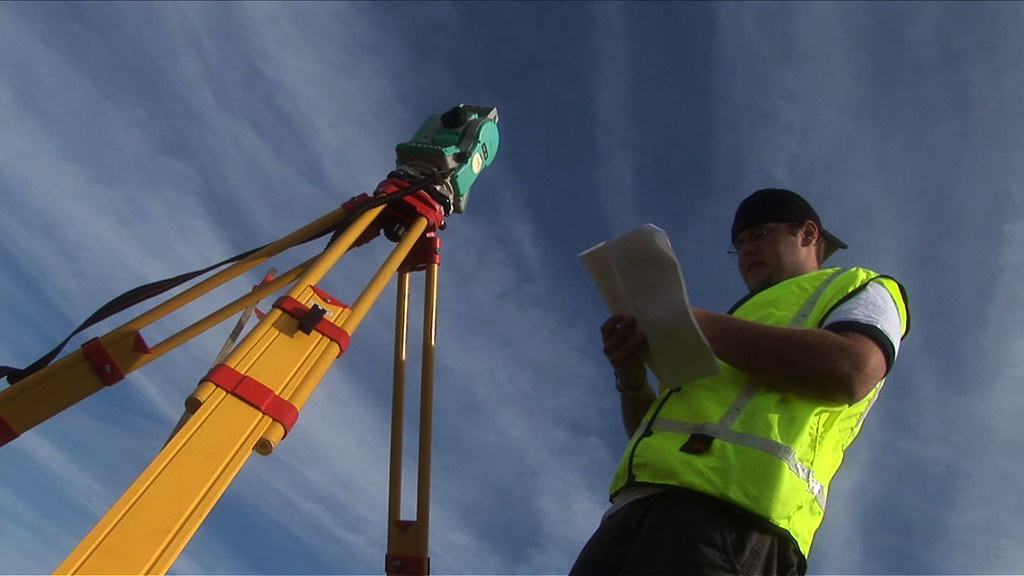What is a surveyor?
While there isn’t one sole definition of a surveyor per se, there is anyone definition of a surveyor – we find them in all walks of life and all areas of the built and natural environments.
However, what we can say is that surveyors shape the world in which we live.
They work collaboratively with other professionals such as architects, engineers, lawyers, bankers, economists, planners, developers, landlords, tenants and IT specialists (the list goes on!) to provide a multi-disciplinary response to the challenges we face in today’s society.
What type of surveyors are there?
The Royal Institution of Chartered Surveyors (RICS) state that there are more than 100 varied career roles across the surveying profession, which can broadly be split into the categories of construction & infrastructure, property, and land.
Construction and Infrastructure Surveying
Surveyors in this area advise on the built environment from the initial concept of development taking place through to the infrastructure that supports our communities and economy.
Typical roles include:
- Building surveyors – who may design and specify works or provide advice on defects or remedial works;
- Project managers – who manage projects to ensure they are completed on time and within budget, problem-solving along the way;
- Quantity surveyors – who are responsible for costing projects and ensuring clients understand the financial impact and profitability;
- Building control surveyors – who primarily ensure compliance with Building Regulations
- Infrastructure surveyors – who design and manage connectivity of transport and cities, including rail, road, broadband and utilities.

Property Surveying
Other surveyors specialise in the field of property, which can be commercial, residential or rural, for example. It can even include personal property such as antiques or fine art.
Property surveying roles include:
- General practice surveyors – this is what I do, with a specialism in landlord & tenant work. Other surveyors may sell, rent and manage both domestic and non-domestic property, e.g. shops, offices, industrial warehouses, housing, hotels, leisure property and charity buildings;
- Valuation surveyors – most valuation surveyors will be RICS Registered Valuers (either AssocRICS or MRICS) – I am one of these too, which, allows me to undertake valuation work under RICS Valuation – Global Standards (Red Book). Other valuers may value businesses, as well as land and property;
- Management consultancy surveyors – who advise clients on how to improve business performance through the property and operational strategies;
- Facilities management (FM) surveyors – who operationally run and manage properties to add value to businesses.
Land Surveying
Many land surveyors advise clients in relation to land, e.g. development sites, planning issues or valuing land or yard space associated with a property. However, land surveyors also work in the wider natural environment with more diverse strategic and advisory roles, e.g. coastlines, flood defences, and mining.
Some typical examples of land surveyors include:
- Geomatics surveyors;
- Environmental surveyors;
- Minerals surveyors;
- Waste surveyors;
- Rural surveyors;
- Planning and development surveyors.
What skills do you need to be a good surveyor?
Surveying covers such a wide range of career paths and areas of practice that it’s impossible to give just one set of skills that a surveyor needs to develop.
However, we think that the five skills below are all transferable across the world of surveying:
- Professional and friendly manner – being able to deal with a range of different people, both professionals and laypeople, in a professional and friendly manner is key. This will include keeping a cool head in challenging situations, being able to negotiate in a non-adversarial manner and communicating effectively;
- Logical thinking – being able to problem solve logically and methodically is key to providing good client advice, this might mean referring to other professionals where appropriate and finding solutions that fit the client’s requirements;
- Willingness to learn – always being willing to learn and improve your skills and knowledge is important, this helps surveyors to provide up-to-date advice in a rapidly changing world;
- Ethical perspective – being able to guide your actions from an ethical perspective is key to remaining transparent, objective and independent when providing surveying advice. The RICS state five ethical standards which surveyors should always follow; taking responsibility, acting with integrity, promoting trust in the profession, treating others with respect and providing a high standard of service;
- Enthusiasm for the built and natural environments – You should love what you do, so enthusiasm for your area of surveying practice is essential!
This article was kindly written by Jen Lemen BSc (Hons) FRICS, co-founder of Property Elite, Chartered Surveyor and RICS APC assessor, who will be looking at careers in surveying.
She is also an experienced property consultant (co-Director of Projekt) and an RICS Registered Valuer, with over 10 years of experience working in the commercial property sector. Jen has extensive experience in providing training services to students, RICS AssocRICS, APC and FRICS candidates and corporate clients, together with academic experience as a Senior Lecturer at the University of the West of England, Lecturer at the University of Portsmouth and Associate Tutor at the University College of Estate Management.


